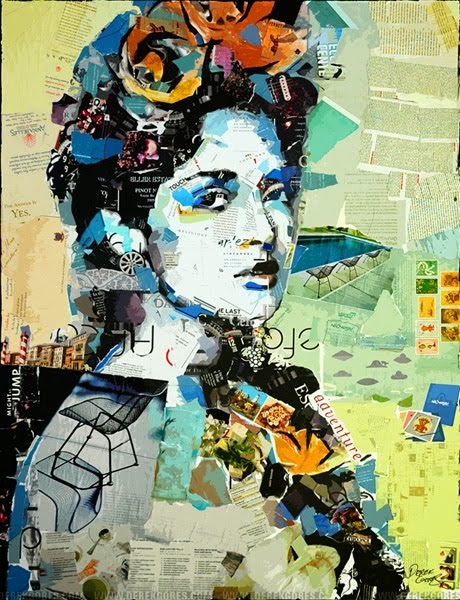Texture is how we describe the surface quality of a 2-dimensional design. With physical objects, we experience texture when we touch their roughness, smoothness ect. We call this a tactile experience, which means a sensation experienced through the sense of touch.
Collage: From the French, meaning 'pasteup,' An artistic composition of materials and textures pasted over a surface, often with unifying aesthetics or themes. Often this term is also applied to digital compositions featuring the integration and overlapping of multiple visual elements
For our next assignment we are going to be experimenting with actual and simulated texture within the framework of 2 specific, and very different approaches to collage.
COLLAGE TYPE 1: RE-CONTEXT
This approach to collage is where artists cut out entire identifiable images (people/objects/words/environments) from various different sources (contexts) and put them together in a new image (recontextualize.) This is usually done to create an unusual, fragmented, immediate image that refers to the culture around us in addition to the artist's vision. Good Re-context collages should be both bold, energetic and have a P.O.V.
COLLAGE TYPE 2: MOSAIC
This approach to collage is where artists 'paint with paper,' that is, they lay out an idea for an image in pencil and then 'color' it by cutting or tearing pieces of paper or other 2-d materials who are chosen for their color of texture. Entire images are not cut out, just a palette made of fragments of paper.








